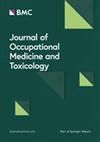Seafarers’ attitudes and chances to improve the nutrition on merchant ships from the crews’ and cooks’ perspective
IF 2.7
4区 医学
Q2 PUBLIC, ENVIRONMENTAL & OCCUPATIONAL HEALTH
Journal of Occupational Medicine and Toxicology
Pub Date : 2024-05-02
DOI:10.1186/s12995-024-00412-x
引用次数: 0
Abstract
Seafarers’ diets are often high in fat, sugar and calories, thus contributing to an increased risk of obesity, metabolic syndrome and cardiovascular disease. The multitude of obstacles to healthy eating in the on-board environment on merchant ships makes it essential to find new approaches for health promotion. This study explored seafarers’ attitudes, the status quo of support measures and chances to improve nutrition on merchant ships from the perspective of crews and cooks. In the course of the EU-funded project “e-healthy ship”, European and Southeast Asian seafarers (N = 810) and ship cooks (N = 62) were examined by using two questionnaires on 68 ships of two German shipping companies. Almost all seafarers (98.8%) considered a healthy diet important for their well-being and the majority of seafarers reported being open-minded about changing their eating habits (88.4%). However, European seafarers were less likely to respond that they are willing to eat less meat [OR 0.11; 95%CI (0.07–0.17); p < .001], more vegetables [OR 0.10; 95%CI (0.02–0.49); p = .005] and more fruits [OR 0.11; 95%CI (0.02–0.61); p = .011] than their Southeast Asian colleagues. On the one hand, 82.3% of the ship cooks reported having taken part in at least one cooking course organized by their employer (1: 33.9%, 2: 25.8%, 3: 14.5%, 4 or more: 8.1%), on the other hand, slightly above half stated that the last of these courses had taken place more than 2 years ago. Furthermore, the ship cooks showed a positive attitude towards the use of a tablet-based digital platform that supports the ship cooks in daily and complex tasks (> 85% agreement). To improve nutrition on board merchant ships, various parameters need to be adjusted, such as ensuring a demand-oriented food supply on board or supporting seafarers’ healthy food choices through target group-specific nutrition education. Ship cooks would be able to play a crucial role if they receive support. The development of a tablet-based digital platform that supports the ship cooks in their daily tasks, offers training and empowers them to implement health-promoting measures themselves seems to be an accepted and promising approach.从船员和厨师的角度看海员对改善商船营养的态度和机会
海员的饮食往往高脂肪、高糖和高热量,从而导致肥胖、代谢综合征和心血管疾病的风险增加。在商船的船上环境中,健康饮食面临诸多障碍,因此必须找到促进健康的新方法。这项研究从船员和厨师的角度探讨了海员的态度、支持措施的现状以及改善商船营养状况的机会。在欧盟资助的 "e-healthy ship"(电子健康船舶)项目过程中,通过对两家德国航运公司的 68 艘船舶上的欧洲和东南亚海员(810 人)和船舶厨师(62 人)进行问卷调查。几乎所有海员(98.8%)都认为健康饮食对他们的健康非常重要,大多数海员表示对改变饮食习惯持开放态度(88.4%)。然而,欧洲海员不太可能回答他们愿意少吃肉[OR 0.11; 95%CI (0.07-0.17); p 85%同意]。为了改善商船上的营养状况,需要调整各种参数,如确保船上以需求为导向的食品供应,或通过针对目标群体的营养教育来支持海员选择健康食品。如果得到支持,船上厨师将能发挥关键作用。开发一个基于平板电脑的数字平台,为船上厨师的日常工作提供支持,为他们提供培训,并使他们有能力自己实施促进健康的措施,这似乎是一个被接受且有前景的方法。
本文章由计算机程序翻译,如有差异,请以英文原文为准。
求助全文
约1分钟内获得全文
求助全文
来源期刊

Journal of Occupational Medicine and Toxicology
PUBLIC, ENVIRONMENTAL & OCCUPATIONAL HEALTH-
CiteScore
6.00
自引率
0.00%
发文量
23
审稿时长
19 weeks
期刊介绍:
Aimed at clinicians and researchers, the Journal of Occupational Medicine and Toxicology is a multi-disciplinary, open access journal which publishes original research on the clinical and scientific aspects of occupational and environmental health.
With high-quality peer review and quick decision times, we welcome submissions on the diagnosis, prevention, management, and scientific analysis of occupational diseases, injuries, and disability. The journal also covers the promotion of health of workers, their families, and communities, and ranges from rehabilitation to tropical medicine and public health aspects.
 求助内容:
求助内容: 应助结果提醒方式:
应助结果提醒方式:


